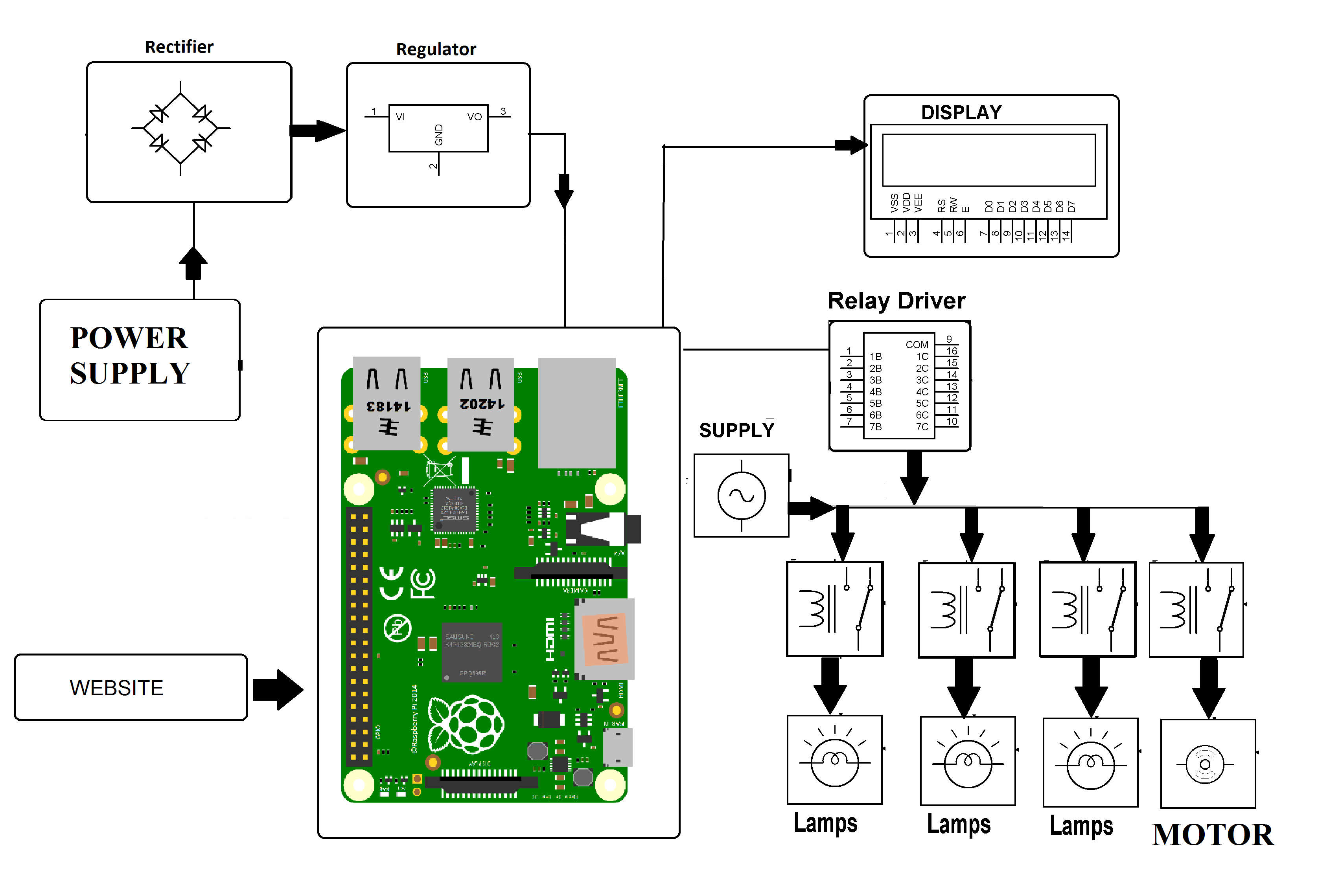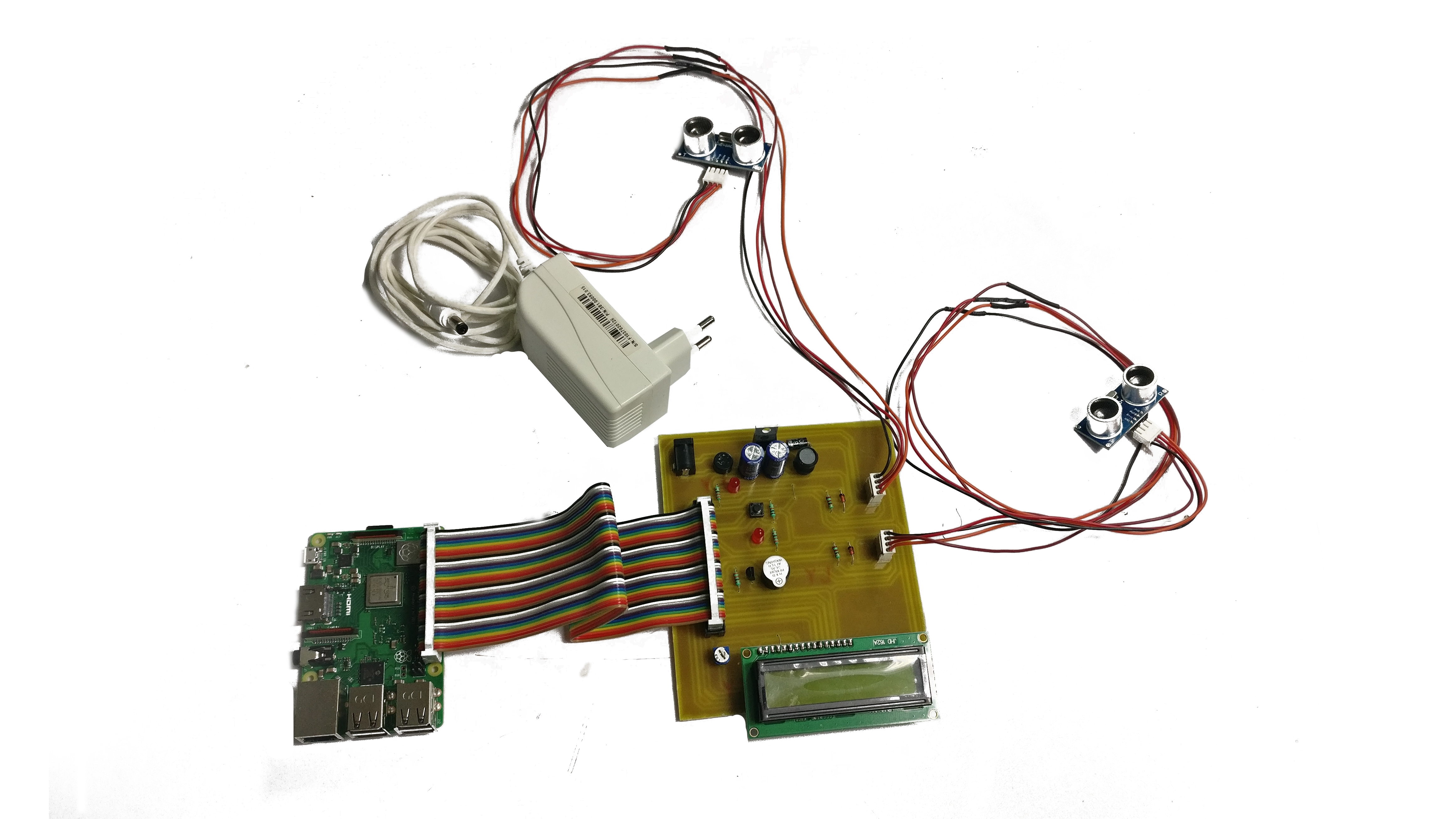Imagine transforming your home or business into a futuristic hub of interconnected devices, all powered by a tiny yet powerful Raspberry Pi. This isn't science fiction—it's the reality of Raspberry Pi VPC IoT projects. These innovative ventures are revolutionizing how we interact with technology, making it more accessible, efficient, and cost-effective. From automating mundane tasks to creating smart environments, Raspberry Pi VPC IoT projects are paving the way for a smarter future. Whether you're a tech enthusiast, a hobbyist, or a professional developer, these projects offer endless possibilities to explore and create. With its affordability, versatility, and open-source nature, Raspberry Pi has become the go-to platform for building IoT solutions that integrate seamlessly with Virtual Private Clouds (VPC).
But what exactly makes Raspberry Pi VPC IoT projects so appealing? The answer lies in their ability to combine the best of both worlds: the compact, energy-efficient design of Raspberry Pi and the robust, scalable infrastructure of cloud computing. By leveraging VPCs, users can securely manage and monitor their IoT devices from anywhere in the world. This not only enhances the functionality of IoT projects but also ensures data privacy and security, which are critical in today’s digital landscape. From smart home automation to industrial IoT applications, Raspberry Pi VPC IoT projects are proving to be a game-changer.
As the demand for interconnected devices grows, so does the need for reliable, scalable, and user-friendly platforms. Raspberry Pi VPC IoT projects meet this demand by offering a seamless blend of hardware and software capabilities. Whether you're looking to build a simple weather station or a complex industrial monitoring system, Raspberry Pi provides the tools and resources to bring your ideas to life. In this article, we’ll dive deep into the world of Raspberry Pi VPC IoT projects, exploring their applications, benefits, and how you can get started on your own project today.
Read also:Exploring Jackie Siegels Net Worth A Deep Dive Into Her Wealth And Lifestyle
Table of Contents
- What Are Raspberry Pi VPC IoT Projects?
- How Can Raspberry Pi Be Used in IoT?
- What Are the Benefits of Using VPC in IoT Projects?
- Popular Raspberry Pi VPC IoT Projects
- How to Set Up a Raspberry Pi VPC IoT Project?
- Challenges in Raspberry Pi VPC IoT Projects
- Future of Raspberry Pi VPC IoT Projects
- Frequently Asked Questions
What Are Raspberry Pi VPC IoT Projects?
Raspberry Pi VPC IoT projects refer to the integration of Raspberry Pi devices with Virtual Private Clouds (VPCs) to create interconnected systems that can communicate, process, and store data efficiently. These projects leverage the Raspberry Pi’s compact design and powerful processing capabilities to serve as the backbone of IoT ecosystems. By connecting Raspberry Pi devices to a VPC, users can access advanced cloud services such as data analytics, machine learning, and remote monitoring, all while maintaining a secure and scalable infrastructure.
The versatility of Raspberry Pi VPC IoT projects makes them suitable for a wide range of applications. For instance, in smart agriculture, Raspberry Pi devices can be used to monitor soil moisture levels, temperature, and humidity. These devices then send the collected data to a VPC for analysis, enabling farmers to make data-driven decisions. Similarly, in healthcare, Raspberry Pi can be integrated into wearable devices to monitor patients’ vital signs and transmit the data to a VPC for real-time analysis by healthcare professionals.
Another key aspect of Raspberry Pi VPC IoT projects is their ability to foster innovation. The open-source nature of Raspberry Pi encourages developers to experiment and create custom solutions tailored to specific needs. Whether you're building a smart home system or an industrial automation setup, Raspberry Pi VPC IoT projects provide the flexibility and scalability required to bring your ideas to life. With the added security and reliability of VPCs, these projects are becoming increasingly popular across various industries.
How Can Raspberry Pi Be Used in IoT?
Raspberry Pi serves as an ideal platform for IoT projects due to its affordability, versatility, and ease of use. One of the most common applications of Raspberry Pi in IoT is home automation. By connecting sensors, actuators, and other devices to a Raspberry Pi, users can create smart home systems that control lighting, heating, and security. For example, a Raspberry Pi can be programmed to turn on lights when motion is detected or adjust the thermostat based on room temperature.
Beyond home automation, Raspberry Pi is widely used in industrial IoT applications. In manufacturing, Raspberry Pi devices can be deployed to monitor equipment performance, track inventory, and optimize production processes. These devices collect data from various sensors and send it to a central server or cloud platform for analysis. This enables businesses to identify inefficiencies, predict equipment failures, and improve overall productivity.
What Are the Key Features of Raspberry Pi for IoT?
Raspberry Pi’s success in IoT projects can be attributed to several key features. First, its compact size and low power consumption make it ideal for deploying in remote or resource-constrained environments. Second, Raspberry Pi supports a wide range of programming languages, including Python, C++, and Java, allowing developers to choose the language that best suits their project. Third, its GPIO (General Purpose Input/Output) pins enable seamless integration with external devices, making it highly customizable.
Read also:Kotaro Lives Alone Season 2 Everything You Need To Know About The Upcoming Anime
Can Raspberry Pi Handle Complex IoT Tasks?
While Raspberry Pi is often associated with simple IoT projects, it is also capable of handling more complex tasks. For instance, Raspberry Pi can be used to run machine learning models for image recognition or natural language processing. By leveraging cloud services, Raspberry Pi can offload computationally intensive tasks to a VPC, ensuring smooth and efficient operation. This makes it a versatile tool for both beginners and advanced users.
What Are the Benefits of Using VPC in IoT Projects?
Integrating Virtual Private Clouds (VPCs) into IoT projects offers numerous advantages, particularly when combined with Raspberry Pi. One of the primary benefits is enhanced security. VPCs provide a private, isolated environment where data can be stored and processed securely, reducing the risk of unauthorized access. This is especially important for IoT projects that handle sensitive information, such as healthcare or financial data.
Another significant advantage of using VPCs in IoT projects is scalability. As the number of connected devices grows, VPCs can easily accommodate increased data loads without compromising performance. This ensures that your Raspberry Pi VPC IoT projects remain efficient and reliable, even as they expand. Additionally, VPCs offer greater flexibility in terms of resource allocation, allowing users to optimize their infrastructure based on specific project requirements.
Cost-effectiveness is another key benefit of using VPCs in IoT projects. By leveraging cloud services, users can avoid the upfront costs associated with purchasing and maintaining physical servers. Instead, they can pay for only the resources they use, making it an affordable option for both small-scale and large-scale projects. Furthermore, VPCs provide access to advanced tools and services, such as data analytics and machine learning, which can enhance the functionality of Raspberry Pi VPC IoT projects.
Popular Raspberry Pi VPC IoT Projects
Raspberry Pi VPC IoT projects are being used in a variety of industries, each with its own unique applications. Below, we explore two popular use cases: smart home automation and environmental monitoring.
Smart Home Automation
Smart home automation is one of the most popular applications of Raspberry Pi VPC IoT projects. By connecting various devices such as lights, thermostats, and security cameras to a Raspberry Pi, users can create a fully automated home environment. These devices can be controlled remotely via a smartphone app or voice assistant, providing convenience and energy savings.
- Lighting Control: Use Raspberry Pi to automate lighting based on time of day or motion detection.
- Temperature Regulation: Integrate temperature sensors to adjust heating and cooling systems automatically.
- Security Systems: Deploy cameras and motion sensors to monitor your home and receive real-time alerts.
Environmental Monitoring
Raspberry Pi VPC IoT projects are also widely used in environmental monitoring. These projects involve deploying sensors to collect data on air quality, water levels, and weather conditions. The data is then transmitted to a VPC for analysis, enabling researchers and policymakers to make informed decisions.
- Air Quality Sensors: Measure pollutants such as CO2 and particulate matter to assess air quality.
- Weather Stations: Collect data on temperature, humidity, and rainfall to predict weather patterns.
- Water Level Monitoring: Track water levels in rivers and reservoirs to prevent flooding.
How to Set Up a Raspberry Pi VPC IoT Project?
Setting up a Raspberry Pi VPC IoT project may seem daunting, but with the right guidance, it can be a straightforward process. The first step is to choose the appropriate hardware and software components for your project. This includes selecting a Raspberry Pi model, sensors, and other peripherals, as well as deciding on the cloud platform you’ll use for your VPC.
Next, you’ll need to configure your Raspberry Pi. This involves installing the operating system (such as Raspbian), setting up network connectivity, and installing any necessary software libraries. Once your Raspberry Pi is ready, you can connect it to your VPC by configuring the cloud platform to accept data from your device. This typically involves setting up APIs, authentication keys, and data storage options.
What Are the Common Tools for Raspberry Pi VPC IoT Projects?
Several tools and platforms can simplify the process of setting up Raspberry Pi VPC IoT projects. For example, AWS IoT Core and Google Cloud IoT provide pre-built services for connecting Raspberry Pi devices to their respective VPCs. These platforms offer features such as device management, data analytics, and machine learning, making it easier to build and deploy IoT projects.
How to Troubleshoot Common Issues?
Like any technology project, Raspberry Pi VPC IoT projects can encounter issues. Common problems include connectivity issues, software bugs, and hardware malfunctions. To troubleshoot these issues, it’s important to have a clear understanding of your project’s architecture and to use debugging tools such as logs and monitoring dashboards. Additionally, online communities and forums can be valuable resources for finding solutions to common problems.
Challenges in Raspberry Pi VPC IoT Projects
While Raspberry Pi VPC IoT projects offer numerous benefits, they also come with their own set of challenges. One of the primary challenges is ensuring data security. As IoT devices collect and transmit sensitive information, they are often targeted by cybercriminals. To mitigate this risk, it’s essential to implement robust security measures, such as encryption, authentication, and regular software updates.
Another challenge is managing the sheer volume of data generated by IoT devices. As the number of connected devices increases, so does the amount of data that needs to be processed and stored. This can strain the resources of your VPC, leading to performance issues. To address this, it’s important to optimize your data storage and processing strategies, such as using data compression techniques and leveraging edge computing.
Future of Raspberry Pi VPC IoT Projects
The future of Raspberry Pi VPC IoT projects looks promising, with advancements in technology driving innovation in this space. One emerging trend is the integration of artificial intelligence (AI) and machine learning (ML) into IoT projects. By combining AI/ML with Raspberry Pi and VPCs, users can create intelligent systems that can learn and adapt to changing conditions, making them more efficient and effective.
Another exciting development is the growing adoption of 5G networks, which offer faster and more reliable connectivity for IoT devices. This will enable real-time data transmission and processing, opening up new possibilities for applications such as autonomous vehicles and smart cities. As these technologies continue to evolve, Raspberry Pi VPC IoT projects will play an increasingly important role in shaping the future of technology.
Frequently Asked Questions
What is the cost of setting up a Raspberry Pi VPC IoT project?
The cost varies depending

